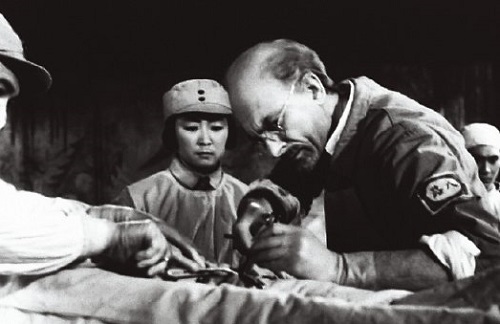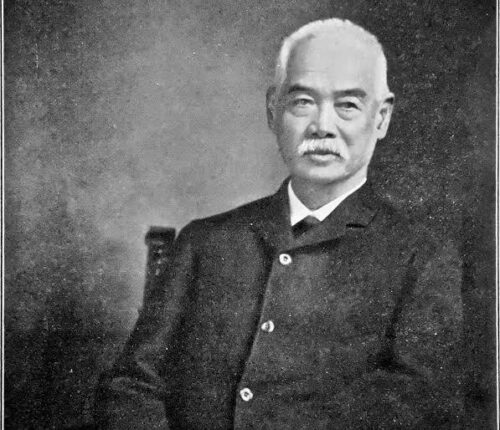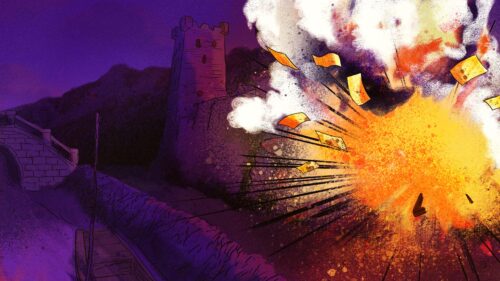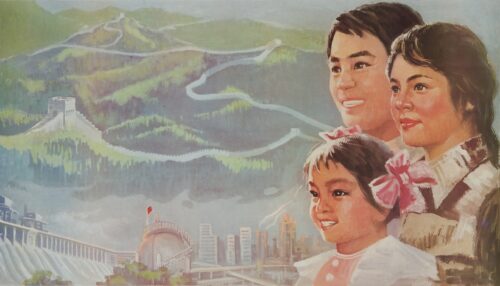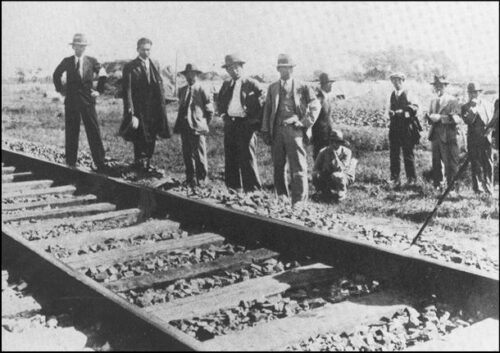This Week in China’s History: November 1, 1939
In September, Sino-Canadian relations made headlines around the world with the release of two Canadian citizens, Michael Kovrig and Michael Spavor, from detention in China. Held for almost three years, the two men were set free just after the release from house arrest in Vancouver of Huawei executive Mèng Wǎnzhōu 孟晚舟.
The incarceration of the “two Michaels” was a low point in China’s relations with Canada, a nadir that stood in stark contrast to how China has generally viewed Canadians for a long time. For decades, it was not uncommon for English-speaking foreigners to claim that they were Canadian when anti-American sentiment flared. But the longstanding Chinese admiration for Canada is not just about the Great White North being less aggressive and confrontational than its neighbor to the south; it has a very specific reason, grounded in the actions of one man during China’s war against Japan. This Week in China’s History looks back at the death of Norman Bethune.
Bethune (formally, Henry Norman Bethune) was born in Ontario in 1890. World War I interrupted his studies at the University of Toronto — he was wounded in the Second Battle of Ypres — but he returned and earned his M.D. in 1916.
Bethune’s experience of medicine and the military set him on a path toward socialism. World War I had been a war of nationalism, and it had shown Bethune the destructiveness of that ideology. Back home, he contracted tuberculosis, and though he recovered, his attempts to understand the disease showed him the strong correlation between wealth and health. As the Great Depression took hold, he provided free medical care for the poor, and became an early proponent of socialized medicine in Canada — and in 1935 visited the Soviet Union to observe their system of free universal health care.
The trip to the USSR made Bethune a committed communist. He joined the Communist Party of Canada when he returned, and the next year volunteered to fight fascists in the Spanish Civil War. He served in Spain for a year and a half but returned to North America, frustrated and looking for another chance to be on the front lines of what he saw — correctly — to be an emerging global war between fascism and its enemies.
In the fall of 1937, the Communist Party of Canada decided that it would send a medical unit to China to assist the Communists fighting the Japanese. Bethune saw this as the opportunity he needed and quickly volunteered. As his biographers Roderick and Sharon Stewart describe it in their book Phoenix: The Life of Norman Bethune, “he had pinned his hopes on this new mission as his last chance to keep the vow he had made so many years before to do something great for humanity.”
Bethune crossed the Pacific on the Empress of Asia, the ship’s manifest an odd juxtaposition of fighter pilots, socialites, missionaries, diplomats, and communist sympathizers. Arriving in Hong Kong in February 1938, Bethune and his team flew to Hankou, the temporary Nationalist capital after the fall of Nanjing. Waiting for them in Hankou was Agnes Smedley, an American journalist who would be one of the West’s most important windows onto Mao and the Chinese Communists. Bethune and his compatriot Jean Ewen, a nurse, made their way to Xi’an — by rail, boat, mule, and foot — to meet with CCP leadership. There, general Zhū Dé 朱德 himself approved of the Canadians’ plans to construct a hospital in Yan’an, supplied by the League of Nations. Final approval would have to come from Máo Zédōng 毛泽东, who was in Yan’an anyway, so Bethune set out again, this time for the de facto Communist capital, where they had been based since escaping destruction at the hands of Chiang Kai-shek (蔣介石 Jiǎng Jièshí) in 1934.
Bethune met Mao in Xi’an and became a valuable contributor to the Communist cause. He was also irascible and difficult to work with. Agnes Smedley demanded that he be recalled because he was “bamboozling the American public” about his role in China. His quick temper, excessive drinking, and impatience alienated would-be allies quickly. Dr. Richard Brown, who served with Bethune for much of his time on the battlefield, declared that “the Angel Gabriel couldn’t get along with Norman Bethune. He’s a horrible man.”
But whatever his personal failings, Bethune was a dedicated servant, intent on navigating the most difficult conditions, believing that this was where he was likely to do the most good. He found this in Jin-Cha-Ji — a region on the borders of the provinces of Hebei, Chahar, and Shanxi (Chahar was disbanded in 1952 and divided among Inner Mongolia, Beijing municipality, and Hebei) — where, he proclaimed, surrounded by Japanese armies in all directions, “13,000,000 people and with 15,000 armed troops, I am the only qualified doctor!”
Bethune worked for more than a year in this mountainous region, rarely with adequate supplies, food, or facilities. It’s impossible to know how many wounded soldiers he tended to, or how many others he helped through his persistent badgering of superiors (whether in the Communist Party, the 8th Route Army, or the China Aid Council under whose auspices he had been sent to China).
And Bethune’s prediction of a global war came true while he was working in the north China backcountry. When Germany invaded Poland in September 1939, he was at work not only treating the wounded, but supervising the construction and administration of local hospitals and other facilities. The widened war made Bethune’s experience potentially valuable in raising awareness, and money, for the war effort, and plans were put in place for him to return to Canada that autumn.
He was days away from leaving for Yan’an — and then presumably back to Canada — when his team paused to receive casualties in the small village of Sunjiazhuang, in Shanxi, using the ruins of a mountainside temple as an operating room. As he operated, Bethune cut his middle finger with a scalpel, which was quickly disinfected and bandaged.
On Monday, October 30, Bethune was in the town of Ganhejing when more casualties began to arrive. Bethune began to triage the wounded. On Wednesday, November 1, he operated on an infected head wound, working without gloves, with the cut on his finger still open. Within days, he became feverish as the wound swelled. Infection spread. Bethune refused to consider amputation — of even the finger, to say nothing of his entire arm.
By November 10, the situation had become dire. Bethune’s colleagues wrote to Nie Rongzhen, commander of the Eighth Route Army (and later military director of China’s program to develop an atomic bomb). Bethune’s last, unfinished letter, addressed to Nie, began: “I am fatally ill. I am going to die.” Early in the morning of November 12, 1939, he died.
News of Norman Bethune’s death reached Yan’an on November 15, where it was received by Zhu De and Mao Zedong, among others. Mao himself wrote a eulogy for Bethune, published in December. A tomb was erected in the village of Juncheng, constructed by locals by hand. When the area was occupied by Japanese troops, villagers hid the body, reconstructing the tomb and re-interring the remains after the war. The tomb was moved to the city of Shijiazhuang in 1952.
His biographers describe a quite different reception for Bethune’s death in his homeland. In the winter of 1939-40, Bethune’s membership in the Communist Party of Canada made him, for many Canadians, an enemy, not because of communism per se, but because Stalin’s actions at the start of the war made many consider the Soviet Union a supporter of the Nazis (the secret non-aggression pact between Stalin and Hitler that would have confirmed this belief was not yet publicly known). Bethune’s own sister burned his possessions.
Bethune remained a hero in China, but especially so with the onset of the Cultural Revolution. Mao’s eulogy was widely circulated. Posters, statues, a museum, even postage stamps celebrated his life and achievements. After relations between the PRC and Canada normalized, in 1972, a rehabilitation of Bethune’s name began in his homeland. Schools, hospitals, and foundations were named in his honor. McGill University hosted a three-day conference on his legacy. Donald Sutherland starred in a made-for-TV movie. And yes, postage stamps.
(It has been said that Bethune was the world’s most famous Canadian, based simply on his popularity in China, but one wonders if Dà Shān 大山 — a.k.a., the comedian Mark Rowswell — supplanted him in this regard in the 1990s.)
Bethune was polarizing during his lifetime — on personal and ideological grounds — but by the 1980s and 1990s, when foreigners began coming to China in large numbers for the first time in decades, he was an institution: a model of foreign goodwill toward China. It’s likely that no other foreigner enjoyed such a universally positive image in China at the time, and his status elevated Canada to prime position among China’s friends in the world.
Obviously, we are in new terrain for China’s relations with the West. The treatment of “the two Michaels” has deterred many from visiting China, though it remains to be seen what the state of that relationship will look like when epidemiology again allows more open borders. Let us hope that, whatever his failings, Norman Bethune’s legacy of selflessness and international cooperation might be remembered amid our selfish and isolationist age.
This Week in China’s History is a weekly column.
